AT first glance, 255 Hudson Street looks like a typical SoHo condominium, with a soaring glass facade, million-dollar listings and a chic designer lobby. But despite having housed entertainment figures like Bethenny Frankel and Kirsten Dunst, this building has more in common with a conservative Park Avenue co-op than a celebrity-friendly downtown high rise.
The condominium, just north of Canal Street, has a 13-page application that requires buyers to provide multiple years of tax returns, bank statements, and personal and business references. “Tell me how this is much different than buying in a co-op?” said Edward E. Longley, a senior vice president at City Connections Realty, who represented an Italian man who bought a one-bedroom in the building earlier this year.
As a foreigner, the buyer lacked much of the necessary documentation and had to spend weeks having his paperwork translated into English and converted into dollars before he could close.
“I now tell all my clients that condo applications are simply co-op applications with the word ‘condo’ slapped on them,” Mr. Longley said.
David Adler, the board president at 255 Hudson Street, who is also the chief executive and founder of BizBash Media, defended the building’s vetting process. “Our board application is as standard as they come for condos right now,” he said. “We do best practices and our management company advises us if they see any red flags.”

In the wake of the recession, an increasing number of condominium boards are hoping to weed out financially questionable buyers by requiring extensive application packages. Demands can include years’ worth of federal tax returns, detailed lists of all assets and liabilities, several letters of references, and even board interviews. These buildings are waging a war of attrition, forcing potential residents to supply extensive documentation in the hopes that those who appear to be a financial risk will walk away of their own volition.
Continue reading the main story
Existing condominiums — buying in a new building is still a relatively simple process — are turning to this strategy because they have no real power to reject an applicant. The only tool at their disposal is the right of first refusal, which allows condominium boards that are unhappy with a buyer to purchase the unit themselves or designate a buyer for the same price. But few buildings can afford to do so.
“It is a bullying strategy — condominium bullying,” said Adam Leitman Bailey, a Manhattan real estate lawyer. “If a condominium has a questionable buyer, they’ll just keep asking for more and more information, dragging things out, until the buyer walks away.”
But condo boards say they are merely defending the interests of existing residents. In the downturn, many owners stopped paying common charges, and condominiums had little recourse to recoup their money. In case of a default, the city is first in line to recover outstanding real estate taxes or other charges, followed by the mortgage lender. The condominium is third in line, and usually all it can do is file a lien against the property and hope that it will be repaid when the apartment is sold.
Because the condominium’s power is limited, it is a matter of fiduciary duty to find strong buyers, said Carl Seligson, the board president of Carnegie Hill Tower, at 40 East 94th Street. In any given month, about three apartments in the 180-unit building have not paid their monthly charges on time; none have defaulted, he said.

Among the building’s application requirements are tax returns, reference letters and a full description of all bank accounts and assets. It used to request board interviews, but “we eliminated the interview process because we didn’t think it was necessary,” Mr. Seligson said. To limit transient residents, the building also requires that sublets be for at least one year.
Condo board requirements run the gamut. At the Time Warner Center, where many buyers are foreign, it is not necessary to submit federal tax returns. The building does require that in addition to general liability insurance of $1 million, owners have a $5 million umbrella policy to cover any unforeseen costs, like an accidental fire or damage incurred during a renovation. On the Upper East Side, 215 East 80th Street has a 67-page application that requires three business reference letters and three personal reference letters for each applicant. And at Towers on the Park, a condominium at 110th Street and Central Park West, the application packet requires potential owners to list all assets and two years’ worth of tax returns, to be certified by an accountant.
Some condo owners purchase through a limited liability company or other business entity, and in those cases a number of buildings require that the principal personally guarantee some expenses, such as monthly common charges and assessments. In other cases a condo may require a security deposit, said Ronald H. Gitter, a real estate lawyer.
“In the past, condominiums would just ask for a simple financial statement,” said Tamir Shemesh, a senior vice president at Corcoran, “but now, due to the financial crisis, even the most exclusive luxury buildings are asking for supporting documents.”
Dani Bar-David was surprised that he had to submit reams of financial information when he bought two Manhattan condominiums as investments. Mr. Bar-David, who lives and works in New Jersey, bought units at 360 East 88th Street and 372 Central Park West, where the applications were 40 pages and 60 pages, respectively. “They wanted so much information, you would think they were the ones who were going to own the apartments, not me,” he said.

Vivek Kukar, a senior vice president at Rutenberg Realty who represented Mr. Bar-David in the purchases, agreed. “The paperwork was extensive, especially given these were condominiums,” he said.
It is the condo boards, and not the management companies, that decide on the extent of the application package, said Dan Wurtzel, the president of Cooper Square Realty, which manages 372 Central Park West and 360 East 88th Street. “Some buildings are very particular, while others that are mostly investor-owned have very general requirements,” he said. On the whole, “the general flavor right now is that condominiums are growing more cautious.”
While it is still the exception, some condominiums are executing the right of first refusal more readily, said Stuart M. Saft, the chairman of the Council of New York Cooperatives and Condominiums, a trade organization. “In the last 12 to 18 months, I’ve seen at least 10 situations where the board bought the apartment or designated another buyer to buy it,” said Mr. Saft, who is also the chairman of the law firm Dewey & LeBoeuf’s global real estate department.
Real Estate
Every week, get updates on residential real estate news, covering the five boroughs and beyond.
When she is representing sellers, Ms. Teplitzky makes potential buyers submit a detailed offer form, to ensure that they are financially secure. “And every time, without fail, where the property is a condominium, the first thing we get is an angry telephone call” from the buyer’s broker “telling us how dare we ask all this information.”
But it isn’t just condos that are being more cautious. “Co-ops also are strengthening their requirements,” said Barbara Fox, president of Fox Residential Group. In fact, the only building types that don’t have excessive application processes are new developments, brokers say.
“Right now in New York City, the only place that you are not being asked questions is when you buy in new construction,” Ms. Teplitzky said. “All they ask is for your name and your money.”



